Of watermelons and apples: climate breakdown, growth, trade, state and money (an open letter to George Monbiot)
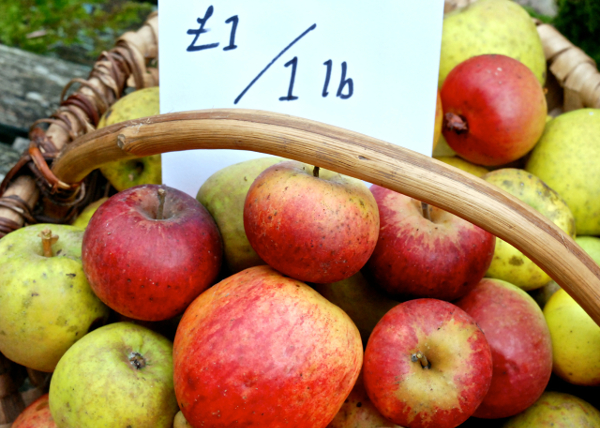
Dear George,
Congratulations on your contribution to the Moral Maze last week – I switched on the radio just as your volley articulating the ideological differentiation between fiscal and legal rationing fairly seared the waves. Not knowing at first to what or to whom I was listening, when you were subsequently named, it was ‘but of course’ and ‘Go Monbiot!’ Wise, passionate, courageous and scholarly, I hope all listeners will look to your writing to illuminate the complex economic, environmental and ethical tensions with which the panel subsequently wrestled.
Tim Stanley’s conflation of socialism with authoritarianism was reductive; I’m not sure what he meant when he later said that he’d expected to hear more Marxism from the environmentalists. (I tend to describe my own politics/sympathies as red/green, and rather than a watermelon, I’m now trying to think of a fruit that has red skin but a green core… an apple, perhaps – a happily homegrown.) I’m also not convinced by arguments that those currently on the sharp end of capitalism will come to benefit from it – and would the means justify the end, even supposing the planet were infinite?
I’m glad there was a clear articulation of the paradox in which some see growth as the answer whilst many of us see it as the problem. I’m wondering what you think of the following.
From the positivemoney.org campaign for sovereign (as opposed to a corporate) money, I have come to understand that our debt-based monetary system is a locking mechanism for growth. It’s basically the grub at the core of the rotten fruit. The basic analysis is as follows:
In aggregate, ~97% of all money has been created as debt at interest (see here for the Bank of England’s explanation of how money is simply written into and out of existence as loans are borrowed and repaid; the interest money is what stays in circulation – and/or pools). In order to repay the interest, ~97% of goods and services (in aggregate) must be costed over and above the essential embodied and actual labour cost. (Of course there are other expenses, which all seem to my mind to be consequences of this same wealth-concentrating system: rent; shareholder profits; carbon offset…) This means that aggregate prices are necessarily higher than wages. Thus the dynamic of cost-cutting, cut-throat competition that drives expansion, mechanisation and outsourcing (and neoliberalism, Brexit and xenophobia, to name but a few symptoms) in its gap-widening race to the bottom is effectively locked in by our current monetary system.
As a result, even highly conscientious use of money, consumption, production, policy-making and so on can never have full effect because it will always be at least partially undermined. Whilst this mechanism is in place, individuals, businesses and governments must run just to stand still – boom or bust – and cannot resist growth even if they wholeheartedly wish to.
I’m not an economist, mathematician or politician, but to frame this in pragmatic terms that relate to Stanley’s question of flood defences in the wealthy Netherlands and the ‘poorer’ Bangladesh: currently a proportion of every pound will always be doing active harm in the form of outright social and ecological destruction (carbon emitting or otherwise). Even were this is permissible or possible on moral and environmental grounds, the financial implications of repair and compensatory costs would surely not represent a good return.
Speaking of growth in developing world economies, problematic examples I often cite are the collapse of this Bangladeshi textiles factory and the factory-runoff in this Chinese river dyed orange. I’m a sole-trading British handweaver, troubled by the way in which, in a global race to the bottom, local, low-impact, artisan production (i.e. often the most sustainable in both social and environmental terms) ends up in a rarefied niche of unaffordable luxury. By my reckoning our trickle-up monetary system is the blight of the markets that leave so many individuals and businesses – particularly the small, the slow, the green and the good – falling off a steeply canted playing field.
I’ve been struck by the contention (I think of Alan Watts’) that ‘saying that there’s not enough money to trade is like saying that there aren’t enough inches to build’. I’m involved in founding a commercial national mutual credit scheme for sustainable traders who seek freedom from this destructive dynamic and whose conscience curtails the so-called freedom of capitalist growth.
Preservation of people and planet must surely involve drastically lower consumption and production than we Westerners in the global 1% are currently role-modelling. This must involve fewer, well-produced goods in a mended market.
As for services, some of the core ones (money creation, health, education) certainly suffer under existing market pressures, and seemingly they too sorely need either a mended market or increased state provision – a state enlarged by land tax, for a start.
Many strands to interweave here. I look forward to your future thoughts on the nexus of the red, the green, the currency and the market.
With thanks and kind regards,
Eloïse Sentito
The views expressed in our blog are those of the author and not necessarily lowimpact.org's




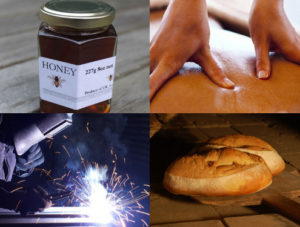 Interview with Matthew Slater: what’s mutual credit, how can it boost the Solidarity Economy, and what can we do to help? (plus webinar)
Interview with Matthew Slater: what’s mutual credit, how can it boost the Solidarity Economy, and what can we do to help? (plus webinar)
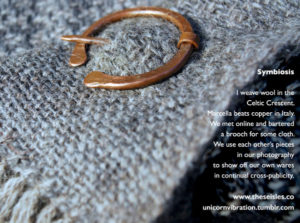 Who can afford artisan goods? For truly green businesses, we have to kick the money habit
Who can afford artisan goods? For truly green businesses, we have to kick the money habit
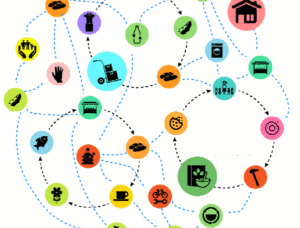 My mutual credit journey (and how you can join in the fun)
My mutual credit journey (and how you can join in the fun)
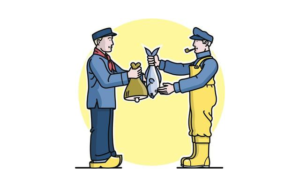 UK Mutual Credit Network: register your interest
UK Mutual Credit Network: register your interest
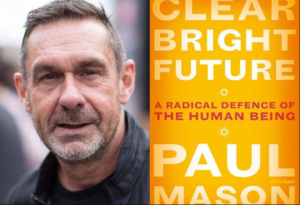 Revisioning postcapitalism: 10 questions for Paul Mason’s ‘clear bright future’
Revisioning postcapitalism: 10 questions for Paul Mason’s ‘clear bright future’
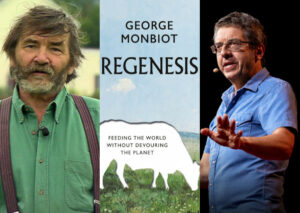 ‘Monbiotic man’ – will future food be ‘farm-free’?
‘Monbiotic man’ – will future food be ‘farm-free’?
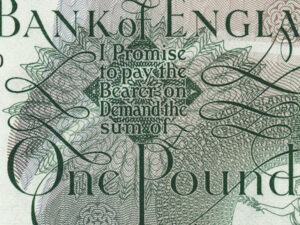 Low-impact money
Low-impact money
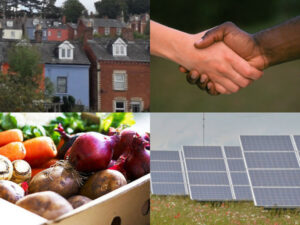 Commons economy
Commons economy
 Philosophy
Philosophy
 Steady-state economics
Steady-state economics
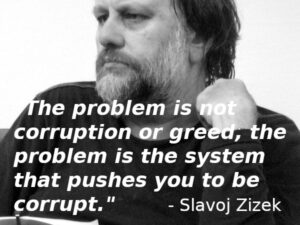 System change
System change
 The 'democracy problem'
The 'democracy problem'
 The 'nature problem'
The 'nature problem'


